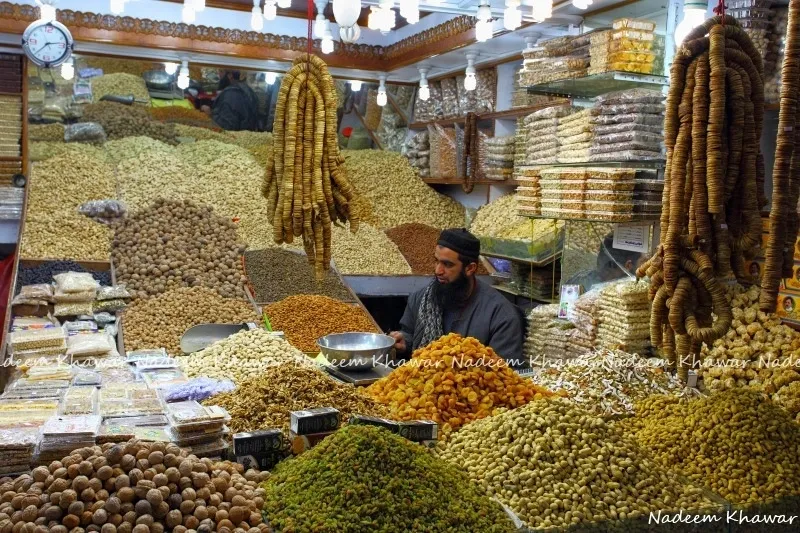Kashmir, nestled in the Himalayan region, is not only known for its breathtaking beauty but also for its immense potential in various sectors, including trade and commerce. The region offers numerous trade opportunities, which can contribute significantly to its economic growth and development. Today we will explore the trade prospects in Kashmir, highlighting the diverse resources, strategic location and emerging sectors that make it an attractive destination for investment and international trade.
Kashmir’s geographical location is strategically advantageous for trade. It acts as a gateway between South Asia, Central Asia and the Middle East, making it a vital link in the ancient Silk Route and an important trade route for centuries. The region’s proximity to major markets and its well-connected infrastructure, including airports, highways and railways, greatly enhances its accessibility and facilitates the movement of goods and services. This advantageous location has the potential to transform Kashmir into a major trade hub, attracting both domestic and international investors.
Kashmir is blessed with abundant natural resources, which present significant trade opportunities. The region is known for its fertile lands, ideal for agriculture and horticulture. It is a major producer of variety of fruits such as Apples, Almonds, Walnuts and Cherries. Also produce such as Saffron and Silk command high demands in national and international markets. Additionally, Kashmir has vast reserves of minerals like limestone, gypsum and coal, which can be utilized for various industries, including cement manufacturing and power generation. The exploitation and export of these resources can boost the economy and create employment opportunities for the local population.
Kashmir’s mesmerizing landscapes and cultural heritage make it a popular tourist destination. The tourism sector, with its immense potential, offers a plethora of trade opportunities. The region’s rich history, iconic landmarks like Dal Lake and Mughal Gardens and Adventure sports like skiing and mountaineering attract visitors from across the globe. Developing infrastructure, including hotels, resorts and transportation facilities, can further enhance the tourism sector, leading to increased trade and local employment. Moreover, promoting handicrafts, such as Pashmina shawls, carpets and wooden crafts, can add value to the tourism industry and generate additional revenue. Kashmir’s rich cultural heritage and diversity can be harnessed to promote cultural exchanges and tourism. Organizing cultural festivals, exhibitions, and events can attract tourists and traders from different parts of the world, boosting local businesses and trade opportunities. Moreover, showcasing Kashmiri cuisine, handicrafts, and traditional art forms can create a unique brand identity, making Kashmir a preferred destination for both tourists and traders.
Kashmir has witnessed significant growth in the Information Technology (IT) sector in recent years. The government’s initiatives to promote IT parks and create a conducive environment for startups and innovation have attracted IT companies and investors. The availability of a skilled workforce and cost-effective resources make Kashmir an ideal location for IT-enabled services. Furthermore, the region’s focus on education and the establishment of educational institutions have resulted in a pool of talented professionals. The education sector can contribute to trade opportunities through collaborations with international universities, attracting foreign students and offering specialized courses. Investing in skill development programs and vocational training can empower the local workforce and enhance their employability. By equipping individuals with relevant skills and knowledge, Kashmir can nurture a skilled labour force capable of meeting the demands of various industries. This, in turn, will attract more businesses to the region and create employment opportunities.
Establishing Special Economic Zones in Kashmir can provide a boost to trade and investment. SEZs offer various incentives, such as tax benefits, relaxed regulations, and streamlined procedures, to attract both domestic and foreign businesses. These zones can be strategically located near transportation hubs and industrial clusters, facilitating easy access to markets and reducing logistical challenges. Kashmir shares its borders with Pakistan and China, which presents a unique opportunity for cross-border trade. By strengthening diplomatic ties and bilateral agreements, Kashmir can leverage its proximity to these countries to expand trade routes and explore new markets. This can lead to increased economic cooperation and mutual benefits for all parties involved.
To sum it up Kashmir’s trade prospects are vast and diverse, ranging from agriculture to tourism, minerals and IT-enabled services. The region’s strategic location, rich natural resources, potential for tourism and focus on education and technology provide a solid foundation for trade and economic growth. The government’s active promotion of investment and infrastructure development is now further unlocking the trade potential in Kashmir. It is imperative for stakeholders, including the government, businesses, and investors, to capitalize on these opportunities and work collaboratively to harness the trade potential in Kashmir, ultimately leading to the region’s economic prosperity and improved standard of living for its people.




